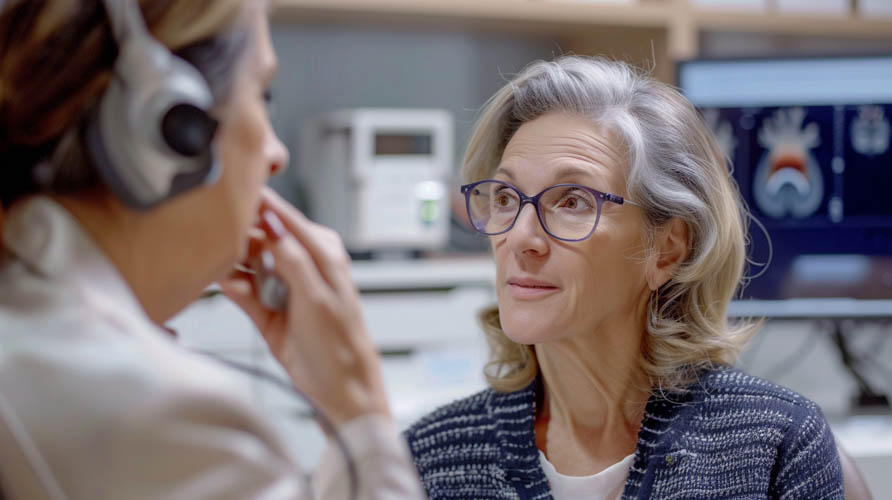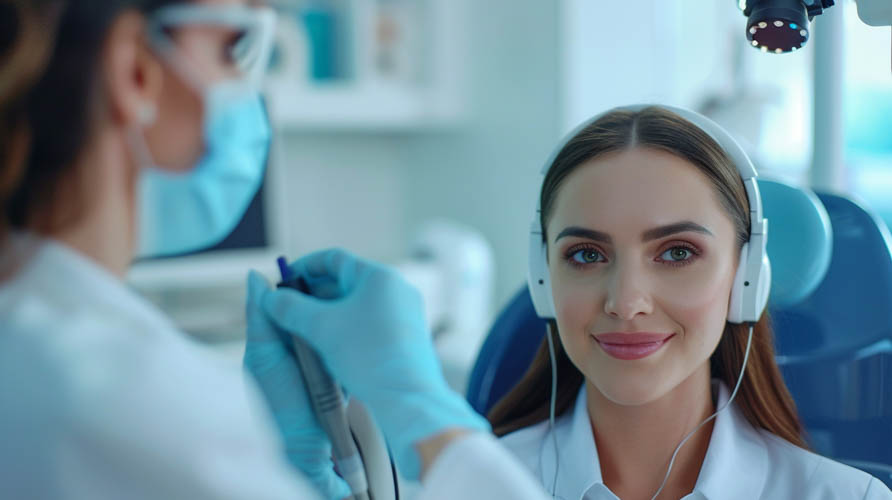To ensure your hearing test goes smoothly, begin by gathering your medical history, including any ear infections and exposure to loud noises. List all current medications, including supplements and herbal remedies, as these can affect hearing. Ensure your ears are clean and free of wax, avoiding cotton buds. Limit exposure to loud noises for at least 24 hours before the test. Note down any hearing issues you've noticed, such as trouble understanding conversations or ringing in your ears. Arrive early for your appointment. Follow these steps, and you'll be well-prepared for a seamless hearing test experience. Learn more to ensure success!
Gather Medical History
Before your hearing test, it's essential to gather your medical history to provide the audiologist with a comprehensive background. This step helps the audiologist understand any factors that might influence your hearing. Start by noting any past or present ear infections, surgeries, or injuries you've experienced. These details can significantly impact your hearing health and the test's results.
Next, think about any chronic illnesses or conditions you have. Conditions like diabetes or hypertension can affect your hearing, so it's crucial to mention them. If you've had exposure to loud noises, either through work or hobbies, make sure to include that information. Long-term noise exposure is a common cause of hearing issues.
Additionally, consider your family's medical history. Some hearing problems can be hereditary, so if there's a history of hearing loss in your family, the audiologist needs to know. Birth complications or childhood illnesses, like measles or mumps, are also relevant if they affected your hearing.
List Current Medications
Alongside your medical history, it's crucial to list all current medications you're taking for the audiologist. This step is essential because many medications can have side effects that impact your hearing. Being transparent about what you're taking helps the audiologist make accurate assessments and recommendations.
When preparing for your hearing test, write down every prescription, over-the-counter medication, and supplement you use. Don't forget to include herbal remedies and vitamins. Some medications, such as antibiotics, diuretics, and chemotherapy drugs, are known to affect hearing. Even common painkillers like aspirin can have an impact.
Include the dosage and frequency of each medication. If you're unsure about the details, bring the medication bottles with you. This ensures the audiologist has the most accurate information. Also, note any recent changes in your medication regimen, as these could explain sudden changes in your hearing.
Clean Your Ears
Proper ear hygiene is essential to ensure accurate hearing test results. Before your appointment, make sure your ears are clean and free of wax build-up. Excessive earwax can interfere with the test, making it difficult for the audiologist to get an accurate assessment of your hearing capabilities. However, you should avoid using cotton buds, as they can push the wax further into your ear canal or even cause damage.
Instead, opt for safer methods such as over-the-counter ear drops designed to soften earwax. These drops can help the wax naturally work its way out of your ear. If you're unsure about how to clean your ears properly, consult your doctor. They can provide professional advice or even perform an ear cleaning for you if necessary.
Avoid Loud Noises
Avoid loud environments for at least 24 hours before your hearing test to ensure more accurate results. Loud noises can temporarily affect your hearing, making it difficult to get an accurate assessment. By avoiding loud environments, you give your ears a chance to rest and recover, ensuring that the test results reflect your true hearing ability.
Here are some practical steps to follow:
- Limit Exposure to Loud Music: Whether at a concert, a club, or even through headphones, loud music can have a significant impact on your hearing. Try to avoid these settings for at least a day before your test.
- Avoid Noisy Workplaces: If you work in a noisy environment, such as a construction site or factory, consider taking the day off or wearing high-quality ear protection to minimise exposure.
- Skip Loud Recreational Activities: Activities like hunting, using power tools, or attending sporting events can expose you to high decibel levels. Plan your schedule to avoid these activities leading up to your hearing test.
Note Hearing Issues
While you're preparing for your hearing test, take some time to note any hearing issues you've been experiencing. Jot down specific problems such as difficulty understanding conversations, especially in noisy environments, or if it feels like people are mumbling. Pay attention to whether you often ask others to repeat themselves or if you frequently turn up the volume on the TV or radio.
Make a list of any ringing, buzzing, or other unusual sounds in your ears, known as tinnitus. Note how long these sounds last and how often they occur. If you've noticed any discomfort or pain in your ears, write that down too. It's also helpful to record whether certain situations make your hearing worse, like crowded places or phone calls.
Think about your medical history and any medications you're currently taking, as some health conditions and drugs can affect hearing. Don't forget to mention any exposure to loud noises, whether from work, hobbies, or sudden loud events. By noting these details, you'll provide valuable information to your audiologist, helping them to make a more accurate assessment of your hearing health.
Arrive Early
Arriving early for your hearing test can help ensure everything goes smoothly and reduce any last-minute stress. When you arrive a bit ahead of your scheduled appointment, you give yourself time to settle in and complete any necessary paperwork. This can make the entire process more relaxed and efficient.
There are a few key benefits to arriving early:
- Complete Initial Paperwork: Many clinics require you to fill out forms detailing your medical history and current hearing issues. Arriving early ensures you have ample time to complete these without feeling rushed.
- Acclimate to the Environment: By getting to the clinic early, you give yourself a chance to get comfortable with the surroundings. This can help reduce any anxiety you might be feeling about the test.
- Address Any Issues: If there are any issues with your appointment, such as misunderstandings about the time or necessary documents, arriving early gives you a buffer to address these without impacting your scheduled test.



